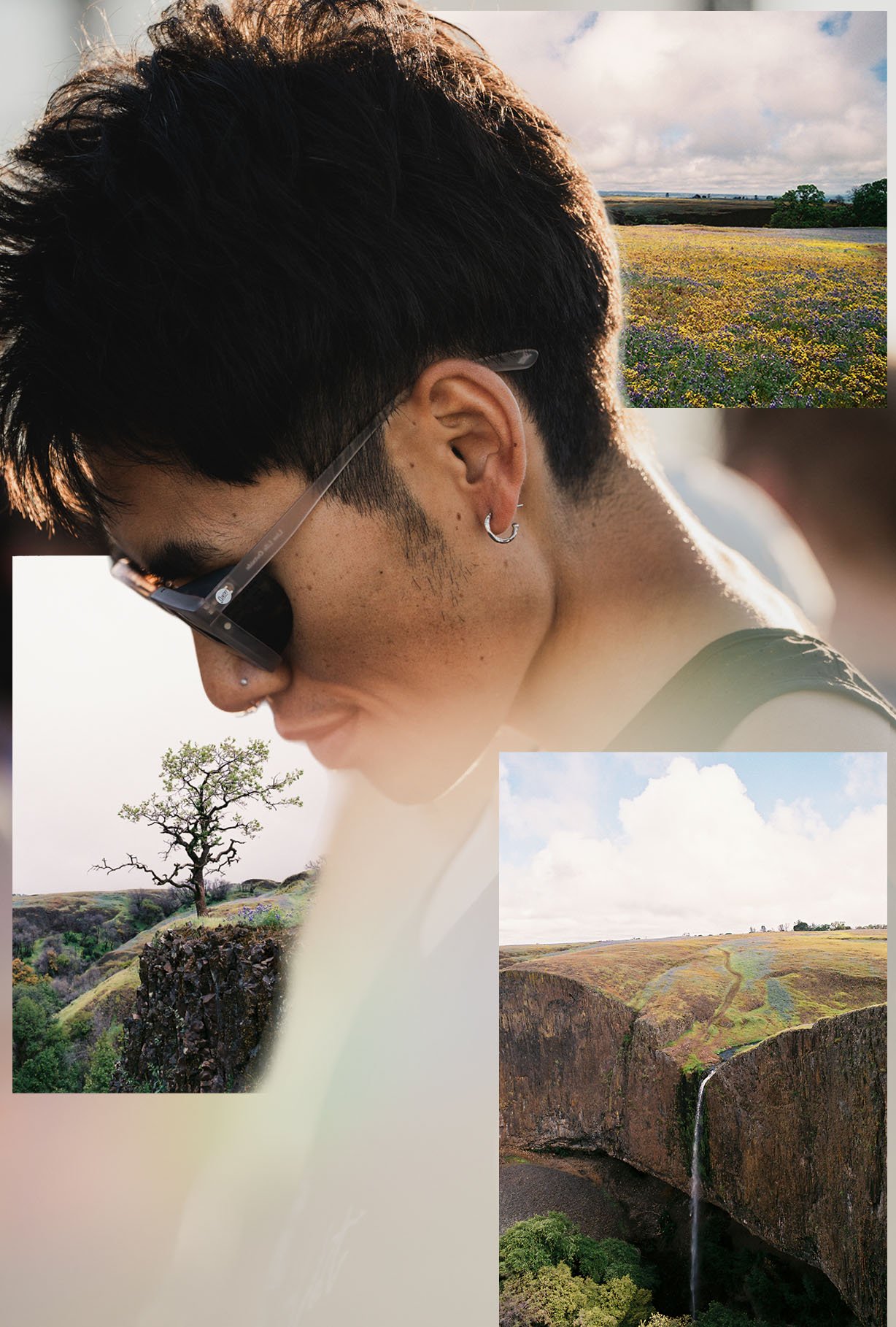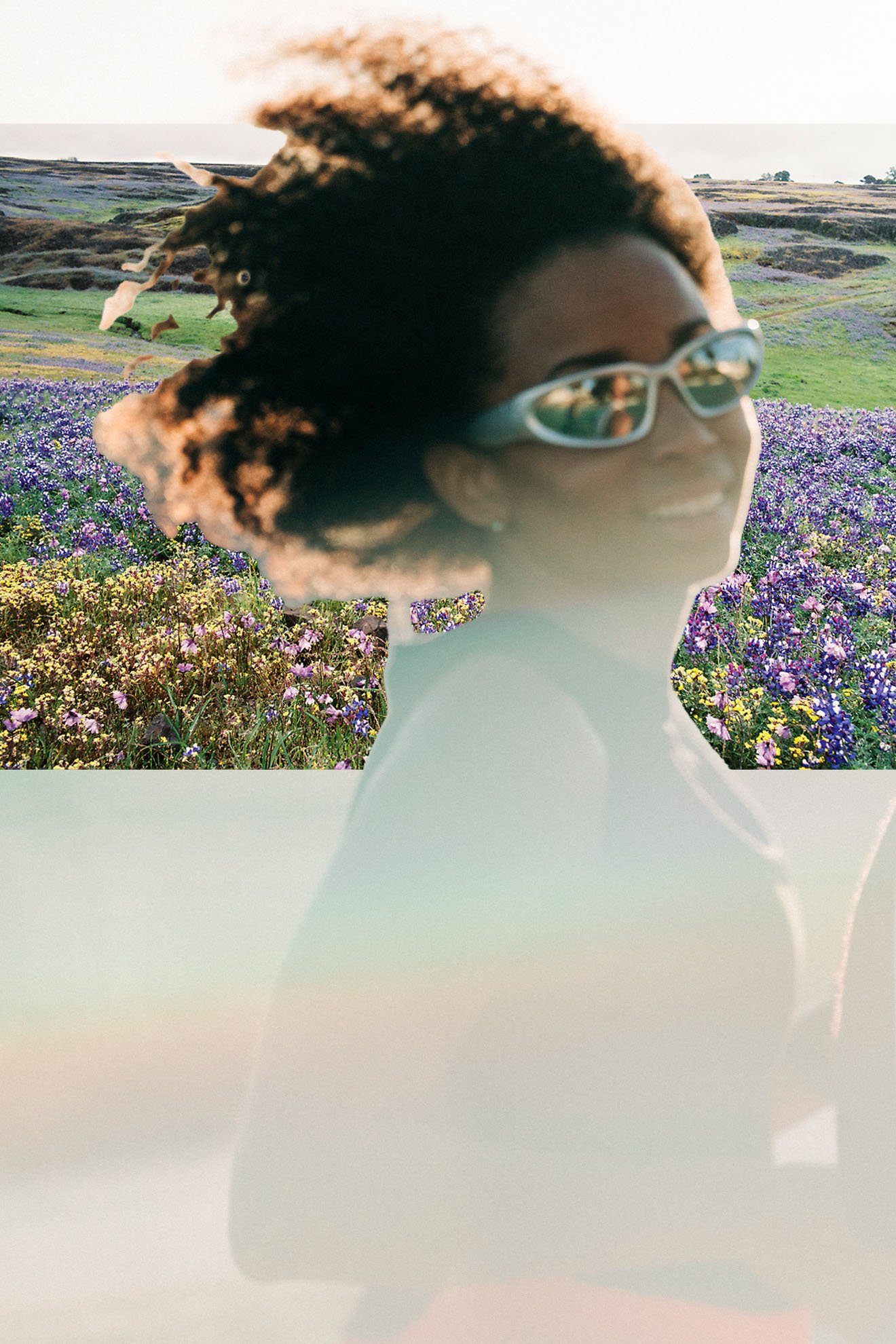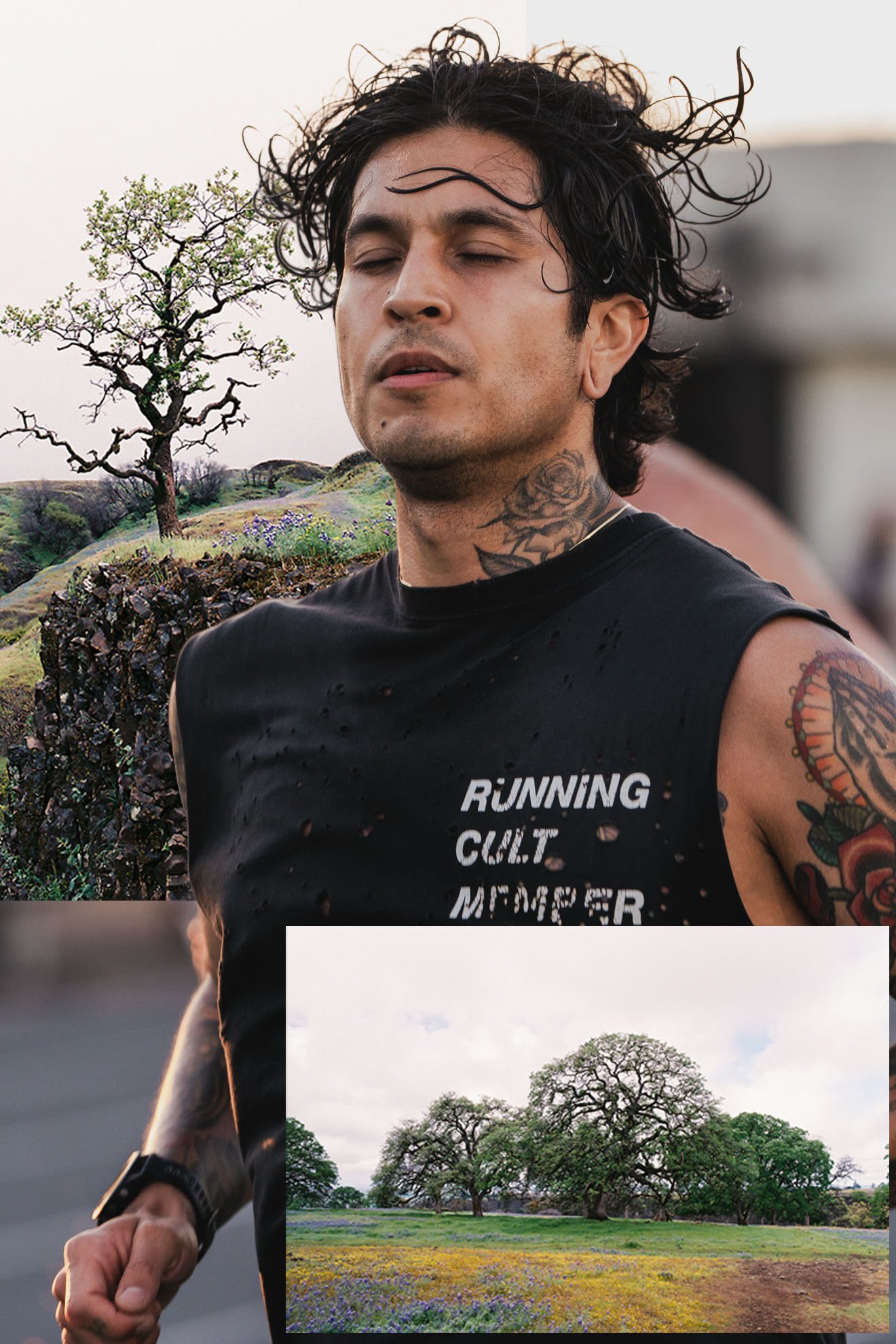Existing in a State of Awe
When I was a kid and I began reading a new book, I would always read the last page first. I don’t know why I did this, but if I had to guess I would say I needed to know what was going to happen in the end. I wanted to be prepared—not knowing made me uncomfortable. I share this to say, my conversation with Margot did not go where I thought it would. Originally I had wanted to speak with Margot about the intersections of gender, running, running culture, and environmentalism. However, about 30 minutes into our conversation, while discussing the constructs humans have created around gender, Margot, who is non-binary said, “To bring it back to gender, for me, it's like the least important thing about me.” And while kid me wouldn’t have liked this, adult me fucking loved that they said that. Because we’re emergent over here now (insert sass emoji) and we know change is constant. What came from this conversation left me feeling full of the light that Margot radiates. They are like the sun, sharing warmth and care and love and life. And while we’re on the topic of starting with the end, towards the end of our time together, I asked Margot, “If gender is the least important thing about you, what would you say is the most important thing about you?” Their answer: Existing in a state of awe. Fuck yeah (my personal emphasis). Now let’s go back to the beginning of the conversation.
Women and non-cisgender men have generally been portrayed as being weak, soft, fragile—or when they are strong it is described as a masculine trait. Perhaps this is becoming less common than in the past, but let’s not forget that women weren’t even allowed to run marathons until the 1970s. God forbid our fucking uterus fell out (people legit thought that was possible). Even as recently as the 2024 Paris Olympics certain female runners were told they do not fall within the confines of what is means to be a woman, according to World Athletics (formerly International Association of Athletics Federation), so they had to make the choice to either change their biology or not compete. Rose Eveleth spent over 10 years researching this specific history of women’s sports and created the fascinating (and infuriating) podcast series, Tested, which goes into this history. Highly recommend giving it a listen.
On the topic of competition I suppose I can understand the comparison of women vs men or wanting to be allowed to compete in the way men have been able to freely do. However, when the comparison of women vs men arises with the idea that women can do anything men can do, the question that comes to mind is, “Do we want to be doing what the men are doing?” Without missing a beat, Margot replies, “No.” Continuing with my thoughts, “Or do we want to do something different? Something better. Why do we have to do what the men are doing to prove our worth?” When you consider who was given, or has taken, resources—whether that be money, time, education, the freedom to run, etc. it was always men first. What are the implications of hoarding resources and power? Well, a climate crisis, for one. As noted in a study on boys and masculinity, “Beyond just aggression, manhood threats are associated with a wide variety of negative, antisocial behaviors, such as sexism, homophobia, political bigotry, and even anti-environmentalism.” There is a lot that can be said and has been said about gender and the choices folks are or are not allowed to make when it comes to their bodies. In a similar way, choices have been and continue to be made for the land we live on without the land having a say. The environmental and conservation movements themselves were greatly influenced by race, class, and gender. This is where I had planned on going with the conversation, but this is also when Margot began talking about choosing running and connection to our bodies as a practice of sitting in our feelings and sitting with discomfort, and they began sharing their thoughts on, “choosing to believe.” In this time on the world’s clock (thank you Grace Lee Boggs for that one, and adrienne maree brown for being the person I first heard this concept from) I think it is important that we talk about what we believe in and the actions we need to take to shape the future we want to create.
With running, as with time spent in nature, there is often the narrative of escaping. Which can be beneficial, we need to escape at times. But in a capitalistic culture, which has commodified running and nature and which profits off our need to escape because we center our lives around work, a culture that depends on us being hyper individualistic, I ask, what are we escaping from and where are we escaping to? Is it escape we crave or connection to ourselves, each other, and the land? Real, true, deep, heartfelt connection. For Margot, they know that, “It feels so good to choose to go to [physically and mentally hard] places with ourselves and then decide that we wanna go there again. I think that’s really important—the power of choosing…I think about how often I get to go run and I know that so many people are never told that they can choose this and then build a relationship with choosing it. Because I do think you have to be open to choosing it over and over again in order to develop it as a practice.” A side note on practice: In the dominate, white supremacy culture we live in, we will hear, “practice makes perfect.” Yet, there is no such thing as perfect. Perfectionism is a characteristic of white supremacy which holds us to unreasonable standards set by those who are most privileged. In 2014 I heard the phrase, “Practice makes permanent,” which was said by Tommy Kono, an American weightlifter who folks argue was the greatest weightlifter of all time. He and his family were forced to live at the Tule Lake internment camp in the 40’s, he was drafted to the army in the 50’s, and when the army realized his weightlifting talent, he began competing for the Olympics (so generous of them, right?). Tommy Kono had a fascinating life and I would recommend learning more about his practices. Back to my point, what we practice becomes permanent, or as adrienne maree brown says, “What we pay attention to grows.” Margot’s practice of pushing themselves to feel discomfort has grown their belief in themselves and the people they care about. When discussing a friend asking for race advice Margot told me, “My friend said to me, ‘I have your voice in my head telling me that you believe in me!’ But when I told my friend that it was so they would believe in themselves. My belief is so big in other people and in myself… if you've run with me you probably are aware of how much I am rooting for everybody… We get to believe the stuff in our head that is made up by us—we get to have control over it, so why wouldn't we choose to believe and trust in our bodies?” Maybe it isn’t escape we so badly need, but rather to sit in discomfort as a way of growth. And the “we” I refer to is the collective we. It’s the “we” in Margot’s sphere of influence that knows they are down to do (practice) the hard shit to move us towards a better way of being. A reciprocal, collective, aware and intentional way of being.
Existing in a state of awe. According to Margot, “What else are we doing here if we’re not feeling? Feeling what other people and the land is feeling and moving with it…our feelings guide us.” Another way to consider this is simply paying attention. Asking, why are things the way they are? Who says? When it comes to a world that wants to put everything into neat little packages of either this or that, rather than an expansive list of possibilities Margot thinks, “That's when you've already decided not to see what is. You've already shut that door and I think that extends to so many things, including gender. Fostering a connection to your body and to your gut feelings, and your intuition, I think, feeds people and pushes them in the right direction and opens you up to what is.” Margot has a strong sense of who they are as well as a connection to their body, which I think is one reason they can find so much awe in the world. They light up when they begin talking about trail running, exclaiming, “I get to exist in a state of awe! All my friends know if we're on a trail I'm not gonna be able to shut up! I’ll be pointing out that tree and that tree and the sun shining through those leaves, and that caterpillar…[Existing] in that state of awe is so freeing and it's taken me so long to get there. The ability to exist in that way has taken time of unlearning and unmasking, and I bring that sense of awe everywhere with me, not just running, but running is one of the ways that it feels closest and one of the ways that it refills the awe for the other places in life where there is less on hand. We're allowed to find that feeling within us. And I think a lot of people are scared to or have doubt. Cultivating a practice of belief and sitting in really good feelings is so helpful, especially when there's a void of that, which is a lot of life at this time.”
The practices of choosing to believe, sitting in your feelings, doing hard shit and knowing your strength will all be needed as we shape the future we want to create together, thankfully these practices are already well known to runners. What I challenge us to do is to be active participants in shaping the future we will create together. Consider your gifts, your strengths, your skills and contribute in the ways you’re able—artists, teachers, caretakers, farmers, journalists…we all have something to contribute. Perhaps no one knows more than the running community how to give support and how much we all need support, so let us draw from that knowledge and apply it to addressing the environmental crisis we are in and do so with an intersectional approach. I think this can be a way of how we shape change within running culture to shape change within our big C culture.





A note on the photos:
Images of runners on the track by Miya Hirabayashi, taken at Laney College in Oakland, CA.
Film images by me, taken at North Table Mountain Ecological Reserve in Oroville, CA.
I chose these images from Miya for the softness, joy, and belief in ourselves that they convey. Running is fucking hard, and yet we push ourselves through a workout, a long run, a race, or even just to get out the door for some easy miles, and this is a practice we cultivate which we can pull from to other aspects of our lives where we need that strength and joy and belief. I have combined Miya's photos with my photos from North Table Mountain Ecological Reserve because my first visit there, and every visit since, I am in complete awe of the beauty and geology of this place. Some places are so special to me that even my memories of being there bring a feeling to my heart that makes me want to cry. Table Mountain is one of those places.

